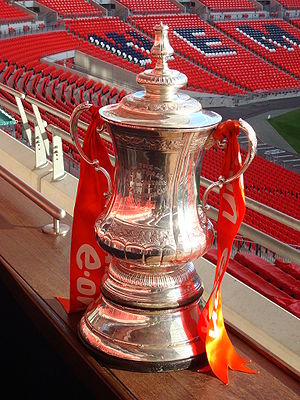Does the FA Cup’s magic still live on?
Even before the first weekend of the decade had drawn to a close, managers and pundits alike had said their piece on the value of the FA Cup. The prevailing mood seems to be that the FA Cup – once the proudest institution in football – has lost its allure.
Joey Barton, midfield menace turned Fleetwood Town gaffer, told The Athletic that “if the big boys decide it’s not for them, then unfortunately for the FA Cup, no one really cares about it”. For a brief period, I was inclined to agree with Mr Barton. After all, the 20 Premier League clubs in FA Cup action on the opening weekend of the 20s made 136 changes between them. Meanwhile, the Championship’s 24 participants made an equally eye-watering 171 alterations.
The stats don’t lie, the boardrooms of the Premier League and Championship have spoken. The FA Cup is no longer a priority worth pursuing.
Perhaps the greatest inditement cast upon the competition in the age of international television deals, data science and ‘moneyball’-style recruitment is the dwindling representation of non-league clubs in the third round. Only Hartlepool United, once a stalwart of the Football League; now non-league dwellers, and AFC Fylde, the National League’s well-financed upstarts made it to the third round this year. Again, this shift in attitude towards the FA Cup can be associated with newfound wealth that sloshes around English football, even in the fifth tier.
The titans don’t fancy it. The minnows don’t fancy it. Regardless, the magic lives on.
How the Magic of the Cup still lives on: the big boys continue to care
Adam Idah certainly felt the force of the Cup, as Premier League strugglers Norwich faced Championship contenders Preston North End at Deepdale on Saturday afternoon. On a blustery, overcast day in the north, Idah – on just his third start – captured the FA Cup’s magic. He smashed the Canaries into the fourth round with an emphatic hat-trick.
In the years to come, Norwich supporters won’t remember the numerous changes Daniel Farke made to his starting eleven in preparation for the trip to Preston. They will remember a historic afternoon on which a star emerged.
South of the River Thames, West Ham travelled to Gillingham in the pursuit of history of their own. The Hammers, finalists in 2006, were abysmal in knock-out competitions throughout the 2010s. Under David Moyes, however, the London Stadium club vowed to take the Cup seriously; they did. Felipe Anderson, Sebastien Haller and Manuel Lanzini started as West Ham secured a berth in the fourth round, crawling to a 2-0 victory on their travels.
The people of East London can continue to dream.
How the Magic of the Cup still lives on: the continued fight of the minnows.
Since taking the hotseat at Vicarage Road, Nigel Pearson has led Watford to an unlikely revival in the Premier League. At the start of December, the Hornets had already been relegated by much of the fan base. However, a festive upturn in form for the club has breathed new life into Watford’s campaign. The visit of Tranmere Rovers, promised to provide a spark for the club in what has been a terrible season.
At half-time in Hertfordshire the magic of the cup seemed to have been snuffed-out by a resilient performance from Watford’s rotated side of youngsters and misfits. Tranmere, outclassed by their Premier League opposition in the opening 45 minutes, seemed destined for a wholly predictable exit. Instead, second half goals from Conner Jennings, Emmanuel Monthe and Paul Mullin re-lit the flame, forcing Watford to travel to Merseyside for a midweek replay later this month.
Port Vale ultimately succumbed to the might of Manchester City, but Tom Pope made the headlines by scoring against John Stones – an English international the Vale striker had previously taken to Twitter to criticise.
In the fourth round, Slaven Bilic – West Ham’s most successful manager since the 1980s – will seek to upset his former club; Sheffield United face an unsavoury trip to the New Den; while Chelsea will attempt to prevent an upset away at Hull. Perhaps the FA Cup isn’t what it once was, but the competition’s magic continues to live on.

Comments